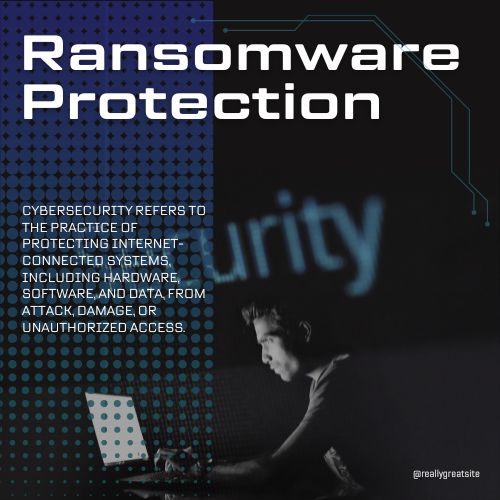In an era where digital threats are evolving at an unprecedented pace, ensuring the safety and integrity of business operations has never been more critical. This necessity introduces the vital role of cyber insurance coverage, an area where products like Silverfort are making significant strides in providing comprehensive protection.
For small business owners, IT professionals, and decision-makers, understanding the scope and benefits of cyber insurance is essential in safeguarding against the multifaceted nature of cyber risks.

The Imperative of Cyber Security
Cyber security is at the forefront of protecting business assets and data in the digital age. With cybercriminals employing increasingly sophisticated methods, the need for robust cybersecurity measures is indisputable.
Effective data protection and loss prevention strategies are the first line of defense against these threats, alongside endpoint security measures that ensure every device connected to the network is secured.
Understanding Data Protection and Loss Prevention
Data is arguably one of the most valuable assets a company can possess. Protecting this data from unauthorized access, theft, or damage is paramount. Data protection involves implementing measures that preserve the privacy and integrity of data, while loss prevention focuses on preventing unauthorized access or data breaches. Together, these approaches form a comprehensive strategy for safeguarding a company’s informational assets.
Understanding Cyber Insurance
Cyber insurance is designed to mitigate the risks associated with electronic business activities by providing a safety net against financial losses from cyber incidents. For small businesses, which often operate with limited resources, falling victim to cyber threats can have devastating effects, making cyber insurance not just beneficial but essential.
- Data Protection
The backbone of any cybersecurity policy is data protection. Effective data protection strategies safeguard critical business and customer information from unauthorized access and cyber theft. Cyber insurance plays a crucial role here by covering the costs associated with data breaches, including legal fees, notification expenses, and rehabilitation measures like credit monitoring services for affected customers.
- Data Loss Prevention
Data loss prevention involves measures and technologies employed to prevent sensitive information from leaving an organization’s network. Accidental data loss or deliberate data theft can severely impact a business’s operations and reputation. A comprehensive cyber insurance policy provides coverage for losses incurred due to unintentional data loss, offering financial assistance for recovery and restoration efforts.
- Endpoint Security
Endpoint security is concerned with protecting the end-user devices that access your network, such as computers, smartphones, and tablets. These devices serve as entry points for threats and, if compromised, can pose significant risks to your entire IT infrastructure. Cyber insurance assists in recovering from attacks that have bypassed endpoint security measures, covering the costs related to system repairs, data recovery, and business interruption.

Ransomware Protection
Ransomware, a type of malware that encrypts files and demands payment for their release, has become a significant threat to businesses of all sizes.
The financial ramifications of a ransomware attack can be staggering, not only due to the ransom demands but also because of the operational downtimes and data loss.
Cyber insurance coverage includes ransom payment negotiations, payment of the ransom (where legally permissible), and support for data recovery and system restoration.
Selecting the Right Cyber Insurance Policy
Choosing the right cyber insurance policy requires a careful evaluation of your organization’s specific needs and risks. Decision-makers should consider the following factors:
- Coverage Limits: Ensure the policy covers the potential financial impact of cyber incidents on your business.
- Inclusions and Exclusions: Understand what is covered under the policy and, equally importantly, what is not.
- Claims Process: Familiarize yourself with the process to lodge a claim, including any requirements for documenting incidents and losses.
Enter Cyber Insurance Coverage
While preventive measures play a critical role, the reality is that no system is infallible. This acknowledgment is where cyber insurance, including offerings like Silverfort’s coverage, comes into play. Cyber insurance is designed to mitigate the financial risks associated with cyber incidents.
It can cover a range of costs, from legal fees and fines related to data breaches to the expenses of restoring data and systems after a ransomware attack.
Comprehensive Coverage with Silverfort
Silverfort offers a unique value proposition in the realm of cyber insurance. By focusing on a holistic approach that includes not just the financial aspects but also technical support in the wake of a cyber incident, Silverfort’s coverage stands out.
For businesses looking for a comprehensive solution that addresses the complex nature of cyber risks, Silverfort offers a compelling option.
Final Thinking
As technology advances, cyber threats become more sophisticated and pose a serious risk to businesses. Having cyber insurance from a reliable company like Silverfort is a crucial element of a strong cybersecurity plan. Silverfort goes beyond basic coverage, offering customized solutions, broad protection, and valuable risk management services.
This comprehensive approach helps businesses minimize the potential damage from cyberattacks, safeguarding their finances, reputation, and operational continuity. With their expertise, rigorous review process, and partnerships with leading insurance providers, Silverfort emerges as a trusted partner. They empower organizations to effectively prepare for and address cyber risks in today’s digital world.
This revision maintains the original message while offering some minor improvements in flow and specificity.
1. What exactly does cyber insurance cover?
Data breach costs: This includes expenses like notifying customers, credit monitoring, and legal fees associated with the breach.
Business interruption: If your systems are down due to a cyberattack, cyber insurance can help cover lost revenue and the cost of getting back online.
Cyber extortion: This covers situations where hackers threaten to release data or disrupt your operations unless you pay a ransom.
Cybercrime: This can include coverage for financial losses due to theft of funds or fraudulent transfers.
Network security liability: This covers your legal defense costs if someone sues you for a data breach.
2. Is cyber insurance necessary for my small business?
3. How much does cyber insurance cost?
4.What can I do to reduce my cyber insurance premium?
Implementing strong cybersecurity measures such as firewalls, anti-virus software, and employee training.
Maintaining good data security practices, such as data encryption and access controls.
Having a data breach response plan in place.
By taking these steps, you can demonstrate to insurers that you are taking steps to minimize your cyber risk.

Leave a Reply
You must be logged in to post a comment.